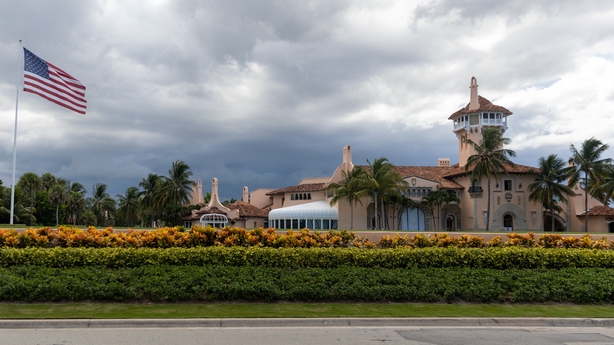A US judge has dismissed Donald Trump's lawsuit against his 2016 rival Hillary Clinton, saying the former Republican president's allegations that Democrats tried to rig that election by linking his campaign to Russia was an attempt to "flaunt" political grievances that did not belong in court.
In throwing out Mr Trump's lawsuit, Judge Donald Middlebrooks of the US District Court for the Southern District of Florida said the lawsuit was not seeking "redress for any legal harm" and that the court was "not the appropriate forum" for the former president's complaints.
"He is seeking to flaunt a two-hundred-page political manifesto outlining his grievances against those that have opposed him," Judge Middlebrooks said in his ruling.
What Donald Trump's lawsuit "lacks in substance and legal support it seeks to substitute with length, hyperbole and the settling of scores," the judge wrote.
He added that he also reserved jurisdiction "to adjudicate issues pertaining to sanctions," which affect Mr Trump's lawyers who filed the case.
The ex president had sued Ms Clinton in March, who was the 2016 Democratic presidential nominee, and other Democrats alleging "racketeering," a "conspiracy to commit injurious falsehood" and other claims in a lengthy lawsuit that echoed the long list of grievances he repeatedly aired during his four years in the White House after beating Clinton.
Mr Trump had sought compensatory and punitive damages, saying he had incurred more than $24 million in "defence costs, legal fees, and related expenses".
In his ruling, Judge Middlebrooks said Donald Trump had waited too long to file his complaint by exceeding the legal statute of limitations for his claims.
He also ruled that he failed to make his case that he was harmed by any falsehoods, noting that many of the statements made by the defendants were "plainly protected by the First Amendment" of the US Constitution.
Mr Trump lawyer Alina Habba, in a statement, said the former president would immediately appeal the decision.
Earlier US prosecutors warned that Donald Trump's team may not have returned all the classified records removed from the White House at the end of his presidency even after an FBI search of his home.
That revelation came in a Justice Department court filing asking US District Judge Aileen Cannon to let it continue reviewing about 100 classified records seized by the FBI at Mr Trump's Mar-a-Lago estate while it investigates whether classified documents were illegally removed from the White House and improperly stored there.

Mr Trump is under investigation for retaining government records, some of which were marked as highly classified, at the resort in Palm Beach, Florida, his home after leaving office in January 2021.
The 100 documents represent a fraction of the more than 11,000 records and photographs seized, most of which the government said Mr Trump may review because they are not classified.
"This motion is limited to ... the seized classified records because those aspects of the order will cause the most immediate and serious harms to the government and the public," the department said in its court filing.
The prosecutors also asked the judge not to allow an independent arbiter, called a "special master," to review classified materials seized from Mr Trump's property.
Mr Trump, in a posting on his Truth Social platform, described the request as a waste of money.

